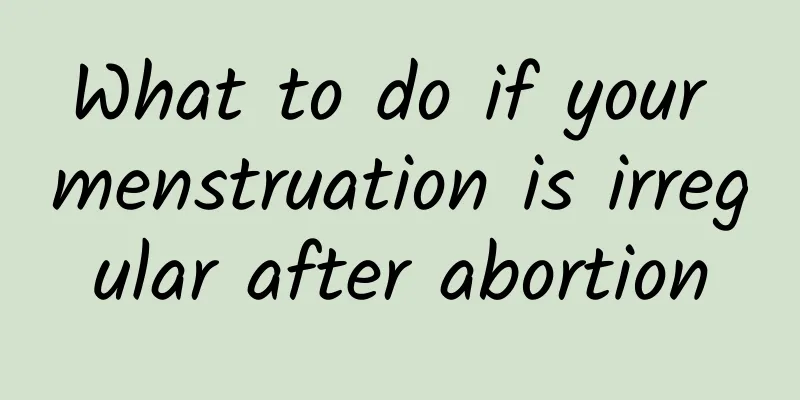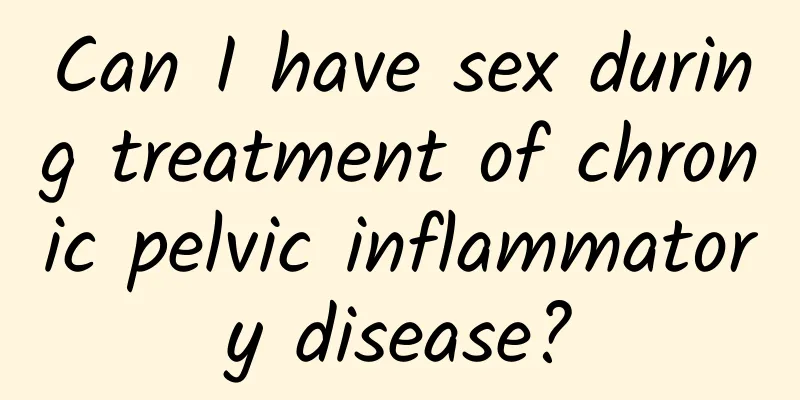What to do if your menstruation is irregular after abortion

|
Although the technology of contemporary abortion surgery is relatively high, it still inevitably causes harm to women's bodies. Many women will experience physical discomfort after abortion surgery. Menstrual abnormalities are a more common problem, mainly manifested as scanty menstruation, menorrhagia or irregular menstruation. We can take corresponding measures to regulate and improve them. So, how should menstrual abnormalities after abortion be restored? 1. Rest as much as possible: After the abortion operation, you need to rest in bed as much as possible and avoid overwork. Pay special attention to adjusting your work and rest schedule and ensuring adequate sleep. Only in this way can your body recover better, and then your menstruation will slowly return to normal. On the contrary, if you are physically tired or lack sleep for a long time after the operation, irregular menstruation may occur. 2. Adjust your diet: After the abortion, you should also adjust your diet and try to eat more nutritious food, which is conducive to the body's better recovery. Be sure not to eat spicy or cold food, which will not only affect normal menstruation, but also affect the body's normal recovery. 3. Relax: Many women may experience irregular menstruation after abortion because they are always sad and depressed. We should learn to control our emotions, release our stress appropriately, and relieve the negative emotions in our hearts by diverting our attention. 4. Hospitalization: Irregular menstruation after miscarriage is likely caused by residual embryos in the uterine cavity, and further diagnosis requires hysteroscopy. If this happens, another uterine curettage is required, which is conducive to better recovery of the body. Irregular menstruation after abortion is, in fact, more common in life. We should adjust our healthy lifestyle, pay attention to balanced nutrition intake, and let the body get enough rest so that menstruation can return to normal. If the abnormal menstruation cannot be improved in the long term, we should also be alert to possible gynecological diseases and must be hospitalized for examination and treatment in time. |
<<: What causes vulvar itching?
>>: What are the treatments for uterine fibroids?
Recommend
Diagnostic criteria for bacterial vaginosis
Mycorethritis is an inflammatory lesion of the ur...
Lose weight without sweating? 7 Slimming Porridges to Help You Lose Fat
Many people want to lose weight but don’t want to...
Experts explain common physical therapies for treating cervical hypertrophy
Physical therapy is a common method for treating ...
Can hyperprolactinemia be cured?
Hyperprolactinemia is a type of female disease th...
The most obvious manifestation of ovarian cysts in female patients
We have all heard of tumor diseases, but I wonder...
Will cervical cancer cause less menstrual flow?
Will cervical cancer cause less menstrual flow? C...
Protein is essential for weight loss! Hou Wenyi nutritionist: Protein can trigger weight loss hormones
The weather in spring is changeable, with sudden ...
How are uterine fibroids caused? What are the causes of uterine fibroids?
Uterine fibroids have caused many women to lose t...
Treatment for women with cervical hypertrophy
What is cervical hypertrophy? In fact, the clinic...
What causes vaginal candidal infection?
The causes of candidal vaginitis confuse many fem...
Prevention and care of pelvic inflammatory disease
Pelvic inflammatory disease is one of the common ...
What are the main treatments for vulvar leukoplakia?
What are the main treatments for vulvar leukoplak...
Is it better to take Jingangteng or Gynecological Qianjin Tablets for pelvic inflammatory disease?
Is it better to take King Kong Teng or Gynecologi...
The following is an introduction to the classification of chronic cervicitis
"What are the classifications of chronic cer...
What to do if endometrial polyps recur for the second time
The recurrence of endometrial polyps can be treat...









